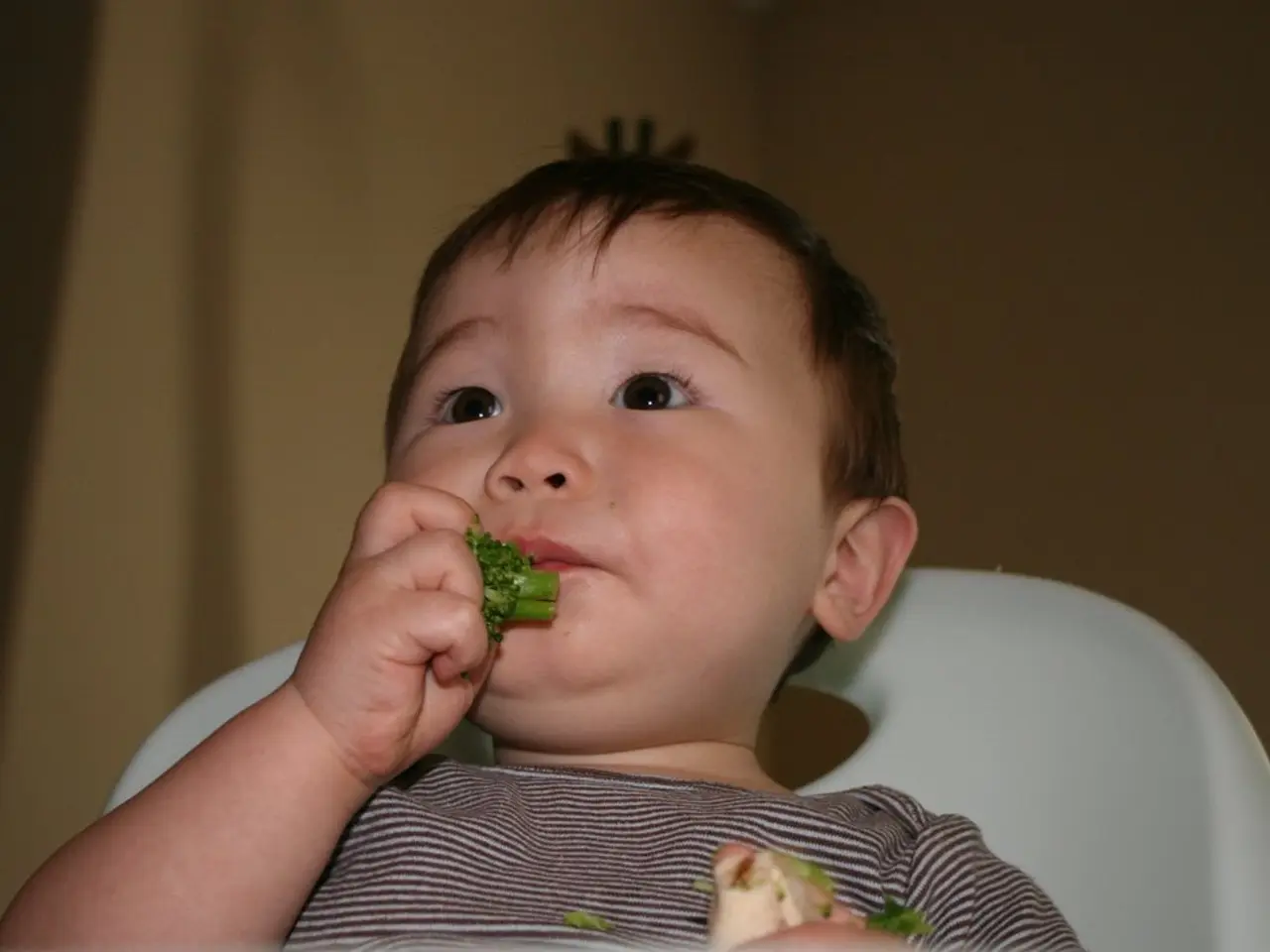Children's bowel difficulties: Causes and reasons to be concerned
In the world of childhood health, constipation is a common issue that affects up to 30% of children and adolescents globally. This article aims to provide an overview of constipation in children, its symptoms, causes, treatments, and prevention strategies.
Constipation can be a troublesome condition for children, causing discomfort and pain during defecation. Symptoms may include having less than three bowel movements per week, passing hard, dry, or large stools that are difficult or painful to pass, abdominal pain or cramps, bloating, and soiling accidents or leakage. In severe cases, children may also experience weight loss, vomiting, or failure to pass stool soon after birth.
The causes of chronic constipation in children can be varied. Common culprits include inadequate fiber intake, insufficient fluid consumption, low physical activity, certain medications like iron supplements, behavioral factors such as stool withholding, dietary habits like consuming too much milk or processed foods, and medical conditions like Hirschsprung's disease.
Upon initial evaluation, a doctor may perform a physical exam, which could involve a rectal exam, checking the child's blood pressure, temperature, and heart rate. Additional testing may be ordered if the cause remains unclear, particularly if tests identify blood in the stool. These tests might include blood tests, urine tests, colonoscopy, sigmoidoscopy, ultrasounds, and X-rays.
Treatments for constipation in children primarily focus on lifestyle and dietary changes. Increasing fiber intake through fruits, vegetables, whole grains, and beans, ensuring adequate hydration, encouraging regular physical activity, and establishing regular toilet routines and positive bathroom habits are all key strategies.
If these measures fail or if constipation is severe, persistent, or accompanied by alarming symptoms, medical evaluation is necessary. This may include checking for underlying causes such as Hirschsprung's disease, which requires surgical treatment to remove or bypass the affected bowel section.
In some cases, medications such as stool softeners or laxatives might be recommended by a healthcare provider. However, it's important to note that these should not be used without medical advice. In some instances, individualized physiotherapy or other interventions might be helpful for children with chronic or complex constipation.
Most children respond well to oral laxatives, according to a 2019 review. However, it's crucial to seek medical advice before administering any such treatments to a child.
Preventing constipation in children can be achieved through several methods. Ensuring they have plenty to drink, giving them a variety of foods including fruit and vegetables, encouraging physical activity, having a regular toilet routine, ensuring children can place their feet flat on the floor when using the toilet, opening up a conversation about toilet use, and being calm and reassuring to a child with constipation can all help prevent this condition.
It's important to remember that constipation can be a symptom of an underlying condition, so if a child's constipation lasts and home remedies do not help, seeking medical advice is crucial. Possible underlying conditions include Hirschsprung's disease, celiac disease, spina bifida, spinal cord injuries, brain injuries, diabetes, hypothyroidism, other metabolism-related disorders, conditions that cause a blockage or narrowing of the colon or rectum, and stool-withholding behaviors due to anxiety and stress.
Doctors may test stools for hidden blood, though this is more common in adult patients. This can help to rule out other diagnoses.
In conclusion, constipation is a common issue in children, but with the right approach, it can be effectively managed. By understanding the symptoms, causes, and treatments, parents and caregivers can help ensure their children's digestive health. If you suspect your child may be suffering from constipation, it's always best to seek medical advice.
- Chronic constipation in children can be caused by a variety of factors, such as inadequate fiber intake, insufficient fluid consumption, low physical activity, certain medications, behavioral factors, dietary habits, and medical conditions like Hirschsprung's disease.
- The symptoms of constipation can include having less than three bowel movements per week, passing hard, dry, or large stools, abdominal pain or cramps, bloating, and soiling accidents or leakage.
- In some cases, children may also experience weight loss, vomiting, or failure to pass stool soon after birth.
- Treatments for constipation in children focus on lifestyle and dietary changes, but if these measures fail or if constipation is severe, medical evaluation may be necessary.
- Medications like stool softeners or laxatives may be recommended by a healthcare provider, but it's important to seek medical advice before administering any such treatments to a child.
- Preventing constipation can be achieved through various methods, including ensuring children have plenty to drink, providing a variety of foods, encouraging physical activity, having a regular toilet routine, and being calm and reassuring to a child with constipation.




